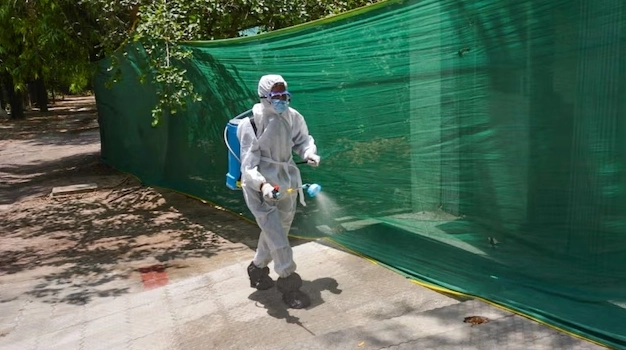 Is Uttar Pradesh under an H5N1 attack? A wave of panic has hit Uttar Pradesh after a tigress at the Shaheed Ashfaqullah Khan Zoo in Gorakhpur died of H5N1, a highly pathogenic strain of avian influenza, or bird flu. Following this, the state government has initiated urgent containment measures, including closing several major zoological parks.
Is Uttar Pradesh under an H5N1 attack? A wave of panic has hit Uttar Pradesh after a tigress at the Shaheed Ashfaqullah Khan Zoo in Gorakhpur died of H5N1, a highly pathogenic strain of avian influenza, or bird flu. Following this, the state government has initiated urgent containment measures, including closing several major zoological parks.
On May 14, 2025, Uttar Pradesh’s Principal Chief Conservator of Forests (Wildlife), Anuradha Vemuri, ordered the week-long closure of Lucknow Zoo, Kanpur Zoo, the Etawah Lion Safari, and Gorakhpur Zoo. This followed a meeting chaired by Chief Minister Yogi Adityanath.
The shutdown, effective until May 20, aims to prevent the virus’s spread among zoo animals and humans. Though the virus mainly affects birds, it can rarely spread to mammals through close contact or environmental exposure.
Chief Minister Yogi Adityanath has emphasised the need for urgent and coordinated action. “The safety of animals and birds in zoos, bird sanctuaries, wetlands, cow shelters, and national parks must be the topmost priority," he said. He instructed officials to act promptly, following both central and state advisories. Key measures include regular sanitisation of zoo premises, frequent health checkups for animals, and testing food and water sources.
Officials said zoo staff must wear protective gear – masks, gloves, and PPE kits – while handling animals. Infection control protocols are in place, and veterinary teams are monitoring animal enclosures for flu symptoms.
Forest Minister Arun Kumar Saxena confirmed bird flu in the dead tigress and said surveillance has been increased in zoos and poultry farms statewide. “Lab reports confirmed bird flu in the tigress. As a result, surveillance has been intensified in zoos and poultry farms. Staff must follow strict biosecurity protocols," Saxena stated.
Following the Gorakhpur confirmation, Agra, Kanpur, Lucknow, and Meerut are on high alert. The Animal Husbandry Department activated veterinary teams and issued advisories to zoo staff and bird sanctuaries. “Any reports of mass bird deaths are to be reported immediately, and sampling of dead birds has begun. These samples are being sent to the National Institute of High Security Animal Diseases (NIHSAD) in Bhopal for analysis," officials said.
In Meerut, a control room has been set up with emergency contact numbers made public. “No bird flu cases have been reported in Meerut, but all preventive measures are in place," said CVO Dr Sandeep Sharma.
No bird flu case has been reported at the Nawab Wajid Ali Shah Zoological Garden in Lucknow. However, Director Aditi Singh clarified that the zoo was closed as a preventive measure. “All animals are under close observation. A decision on reopening will be made after assessing the situation," she said.
The H5N1 virus, also known as bird flu, is a contagious viral disease that primarily affects birds but can occasionally infect mammals, including humans. It spreads through contact with infected birds, droppings, or contaminated surfaces.
Uttar Pradesh is not the only state responding to this threat. Madhya Pradesh has issued precautionary advisories after wild bird deaths in Seoni and Balaghat districts, though no confirmed H5N1 cases have been found. Similarly, Odisha’s Chilika Lake region is being monitored amid fears of the virus arriving via migratory birds.
In Uttar Pradesh, the government is also monitoring poultry farms and chicken markets. The Municipal Corporation’s Animal Welfare Department supervises all points of bird movement, including poultry shops. “Bird flu can also spread from migratory birds, so local surveillance is essential," said Dr. Ajay Kumar, municipal veterinary officer in Kanpur.
Amid escalating fears, the Animal Husbandry Department in UP has opened emergency control rooms in affected districts. Public awareness campaigns are encouraging prompt reporting of sick or dead birds. Guidelines for poultry farm registration have been introduced to track disease movement and maintain transparency.
A bird flu advisory is expected shortly via video conferencing with district-level animal health officers. Public gatherings in bird sanctuaries are restricted, and handling of dead birds is done only by trained personnel in protective gear.
Officials said the next few days will be crucial in determining the scale and containment of the outbreak.